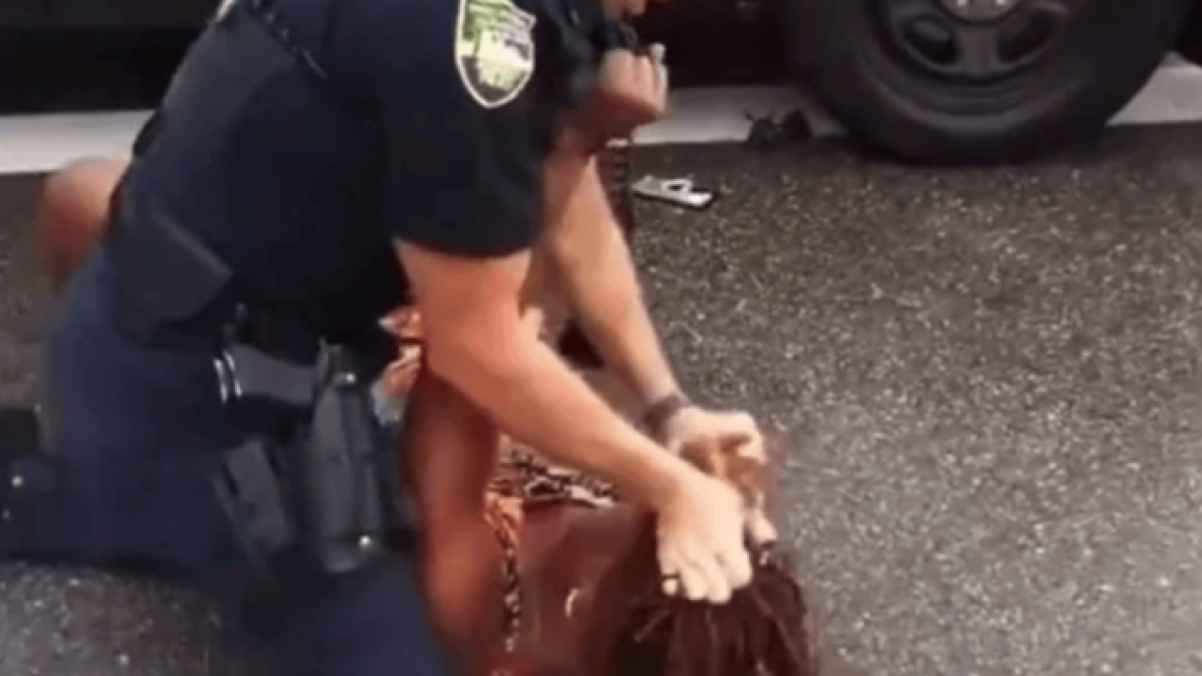Police Officer Violently Assaults African-American Woman

A viral video in the United States has sparked widespread outrage after showing a police officer violently assaulting an African American woman outside a school in Florida. The shocking footage reignited debate over police conduct and the ongoing issue of excessive use of force.
He went too far in the assault!
The circulated video shows the officer attempting to detain the woman, who was waiting for her child in her car parked in a no-parking zone. The situation quickly escalated into a physical confrontation. The footage captures the officer gripping the woman’s arm aggressively while trying to restrain her as she screamed in pain, pleading for him to let go. Moments later, he slammed her to the ground with excessive force as bystanders, including children, watched in shock.
When the woman tried to resist and defend herself, the officer grabbed her by the hair and pinned her to the ground, pressing on her neck. The disturbing scene provoked anger among witnesses, some of whom attempted to intervene. Police later arrested two women from the crowd, accusing them of obstructing law enforcement and verbally abusing the officer.
The incident occurred at a sensitive time, marking the first recorded enforcement of the newly enacted “HALO Law,” which took effect in January 2025. The law requires individuals to maintain a distance of at least 7.5 meters (about 25 feet) from police officers while they are performing their duties. Although the law was introduced under the pretext of protecting officers from interference, it has stirred controversy, with critics arguing that it restricts public oversight of police behavior and shields potential misconduct.
The video has triggered widespread outrage and demands for an immediate investigation into the officer’s actions. The incident also reignited painful memories of past cases involving excessive police violence against African Americans — a recurring issue that continues to challenge the U.S. justice system and public trust in law enforcement.
